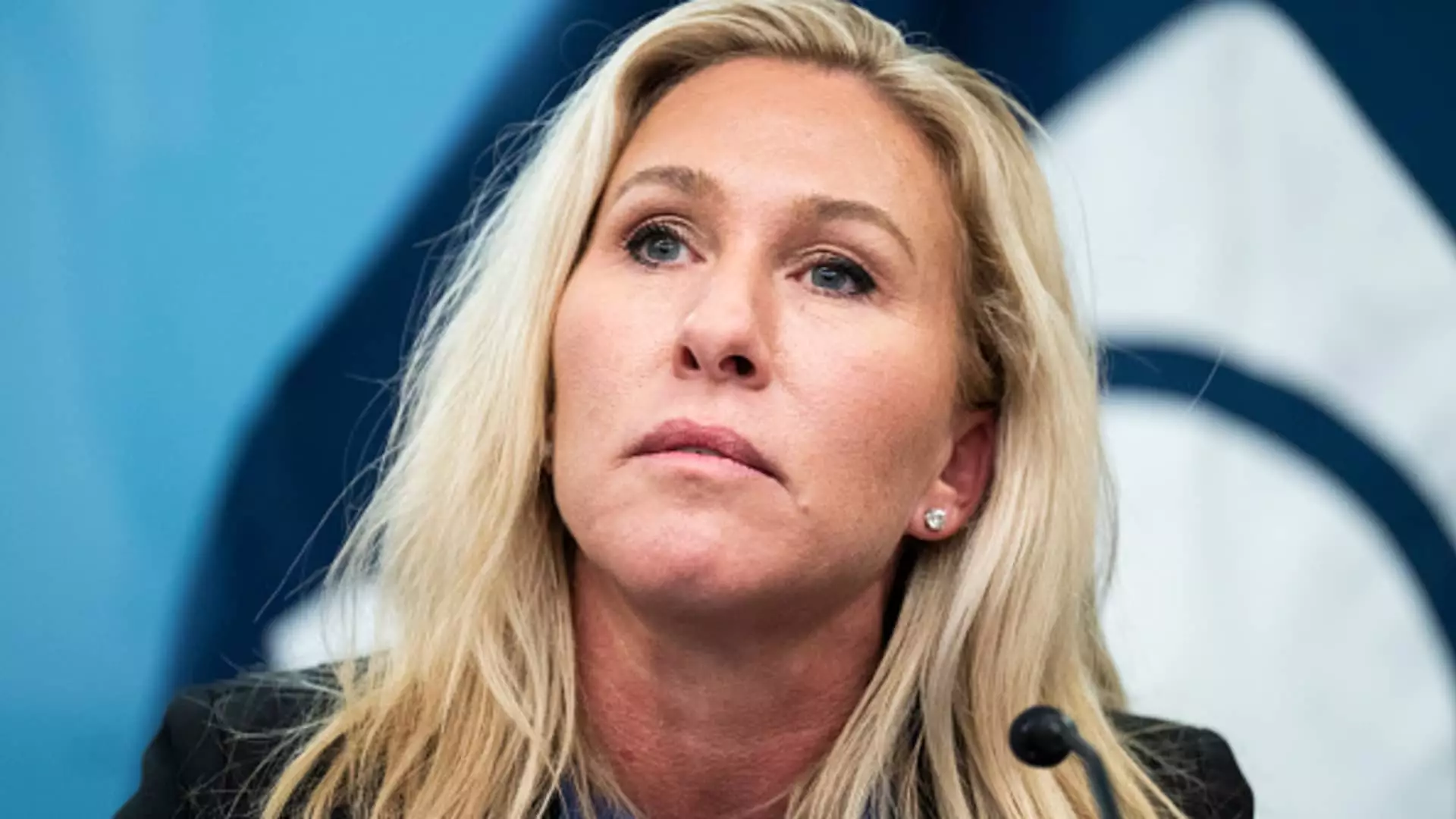In an unexpected yet noteworthy political move, Representative Marjorie Taylor Greene has been appointed to preside over a new subcommittee within the House of Representatives focused on government efficiency. This initiative aligns Greene with high-profile figures like Elon Musk and Vivek Ramaswamy, whose involvement in the private sector is viewed with a mix of admiration and skepticism. Greene’s leadership style and commitment to drastic government reform, which includes the potential firing of bureaucrats, raises questions about the viability and implications of such an approach in the political landscape.
The subcommittee officially named the “Subcommittee on Delivering on Government Efficiency” (DOGE) is designed to work synergistically with initiatives outside the conventional governmental framework, particularly those led by Musk and Ramaswamy. House Oversight Chairman James Comer, who has closely coordinated with Greene in the creation of this subcommittee, aims to launch this venture early in the upcoming year. The DOGE acronym evokes a sense of humor, referencing an internet meme and cryptocurrency that have become synonymous with Musk, further complicating the serious nature of government reform with a layer of pop culture.
Greene’s previous controversies, including her embrace of fringe conspiracy theories, have been a source of contention within Congress. Her reinstatement to a powerful role amid past reprimands for her conduct suggests a political strategy that embraces vocal, populist stances. According to sources, the subcommittee will pursue ambitious goals, such as exposing government waste, cutting bureaucratic red tape, and reinvigorating public trust through transparency. Most notably, Greene has pledged that “no topic will be off the table,” hinting at a potentially provocative agenda.
The collaboration with Musk and Ramaswamy may be seen as an unconventional alliance, merging the worlds of politics and business in unprecedented ways. Musk, best known for his ventures in technology and space travel, brings a unique perspective on efficiency that could influence government operations deeply. Ramaswamy, with a background in pharmaceuticals and a burgeoning political career, offers insights into private-sector best practices that may resonate within the public sector. Their joint mission—to identify and mitigate inefficiencies in government—will likely collide with traditional political processes, positioning the subcommittee as a controversial player in federal reform.
The Political Ramifications
James Comer’s remarks about the necessity of “getting the chopping block going” for “too many fat cats in government” underpin a broader populist sentiment that seeks to dismantle the administrative state as it stands. This initiative has the potential to reshape the political arena, especially in a time where anti-establishment sentiments are prevalent among certain voter demographics. Critics may argue that the subcommittee risks undermining serious governmental functions by adopting a language and strategy more aligned with a hostile takeover than constructive reform.
As Greene steps into this role, the challenge will be to transform her bold rhetoric into tangible strategies that achieve real change. The task of exposing inefficiencies and fostering accountability in government will not be without its hurdles. Legislative deadlock and political opposition could jeopardize the aggressive timeline that Greene envisions. However, if successful, the DOGE subcommittee could serve not only as a model for efficiency but also as a blueprint for further populist-driven initiatives in the realm of governance.
The establishment of the Subcommittee on Delivering on Government Efficiency under Marjorie Taylor Greene signifies both a continuation of divisive partisan politics and a possible shift toward new paradigms of leadership in government. As Greene aligns herself with notable figures from the business world, it will be essential to monitor the outcomes of their collaboration. With ambitious goals and a controversial leader at the helm, the subcommittee presents an intriguing case study on the intersection of government functionality and the private sector’s influence—one that could redefine how public institutions operate moving forward.



Leave a Reply